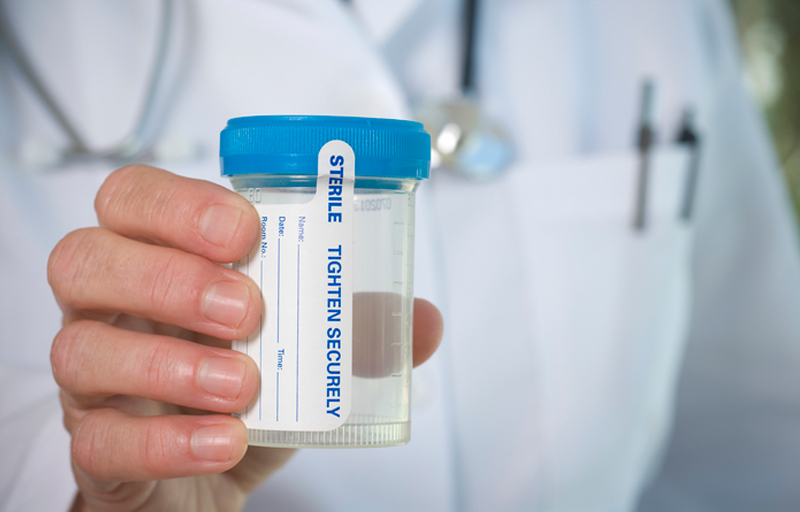
Random Drug Testing Protects Patients and Medical Personnel
A proposal to require physicians licensed in California to undergo random drug and alcohol tests, Proposition 46, may be on the ballot as part of a larger initiative in November 2014.
Patients may be surprised to learn that the vast majority of medical professionals who are responsible for their care are not subject to any kind of monitoring for substance use. Though some medical personnel may have to pass an initial drug test as part of the hiring process, they are not required to be randomly screened for drugs or alcohol. Physicians in private practice are not employees and are therefore usually not drug tested at all. When physicians use drugs of abuse, they can put their patients at risk. Beyond physicians, random drug and alcohol testing should be conducted for all healthcare workers, especially considering their easy access to highly abused substances.
Mandatory random employee drug testing is common in safety-sensitive positions. Physicians and other healthcare workers are responsible for making critical decisions and taking actions that directly affect the health and well being of the sick and injured. They also face an occupational hazard of easy access to drugs of abuse. Aren’t these positions also “safety-sensitive”?
The United States military has used random drug testing since the early 1980s with little controversy. Following the success of military testing in sharply reducing drug use, drug testing spread to the U.S. workplace in the late 1980s. Randomly tested populations include the estimated 10 million Americans with commercial driver licenses as required by the U.S. Department of Transportation. Similar testing programs have been developed for the nuclear power industry. The twin goals of random drug and alcohol testing within these populations are to reinforce all prevention messages to discourage drug use and, when random tests are positive, to intervene to help the individual stop drug use and, if needed, obtain treatment. Random testing not only reinforces the laws against illegal drug use, but it also identifies recent drug use quickly creating a strong deterrent against illegal drug use and alcohol use among individuals on whom others’ lives depend.
Generally, medical organizations oppose random testing of healthcare personnel as unnecessarily expensive and a violation of privacy; however, a few hospitals do drug test some physicians, including most notably Massachusetts General Hospital in Boston, which randomly tests anesthesiology residents and fellows.
The fact that medical personnel are not subject to random drug testing is somewhat surprising given the fact that physicians receive the best care management for substance use disorders. Physicians, nurses, and other medical personnel with substance use problems are commonly referred to a state physician health program (PHP). Upon referral to the PHP, individuals are evaluated for substance use disorders and co-morbid medical and mental health problems. When a substance use disorder is identified, they are provided safe haven from the medical board if there has been no evidence of patient harm as a result of their substance use and admitted to high quality treatment, typically for 1 to 3 months. Participants must abstain from the use of alcohol and other drugs for the duration of care management for periods of 5 years or longer. They are subject to frequent random drug and alcohol tests and detection of use is met with immediate consequences. Other elements of the PHP care management may include worksite monitors, close participation in the 12-step programs of Alcoholics Anonymous and Narcotics Anonymous or other peer-based recovery support. A national study of PHPs demonstrated that these programs produce the best long-term results, setting the standard for all substance use disorders. If and when drug testing among physicians is implemented, the PHPs would be an ideal source for further evaluation of positive tests because of their highly trained staff with extensive expertise in dealing with substance abuse and the fact that they are already positioned in most states to deal with alcohol and drug problems among this population.
Today only the physicians and other medical professionals in the PHPs and similar care management programs are subject to random drug and alcohol testing—most often only after serious consequences have resulted from their substance use.
Who is identified in random testing—occasional users or heavy users? An analysis showed that with random testing at a rate of half of the employees being tested randomly each year, 52% of all positive tests will be from daily drug users; 41% will be from monthly drug users and only 7% will from past year drug users, even though daily users represent only 8% of employees who use illegal drugs. This study demonstrates that it is rare for an occasional user to be identified in a random drug testing program and suggests that random testing would specifically help identify heavy users who are the most problematic in the workplace and elsewhere.
Random testing of physicians and other healthcare personnel is not only good for patients and for patient confidence in their healthcare workers; it is also good for physicians including those who use drugs. Random testing saves careers and families as well as protects patients.
Unfortunately, although drug testing of physicians is a good idea, the proposed law in California is a Trojan horse. While physician drug testing is the focus of the effective media campaign surrounding the proposal, the real reason for the proposition is to create a change in medical malpractice laws in California, heavily supported by trial attorneys, which would increase awards to patients and their attorneys and ultimately increase the cost of medical care.
Even without laws requiring drug testing, we encourage hospitals and other healthcare organizations and medical group practices, including medical licensing boards, to implement random drug testing for medical professionals including physicians, linked to interventions to help individuals stop their drug use and obtain substance use disorder treatment when it is needed.







